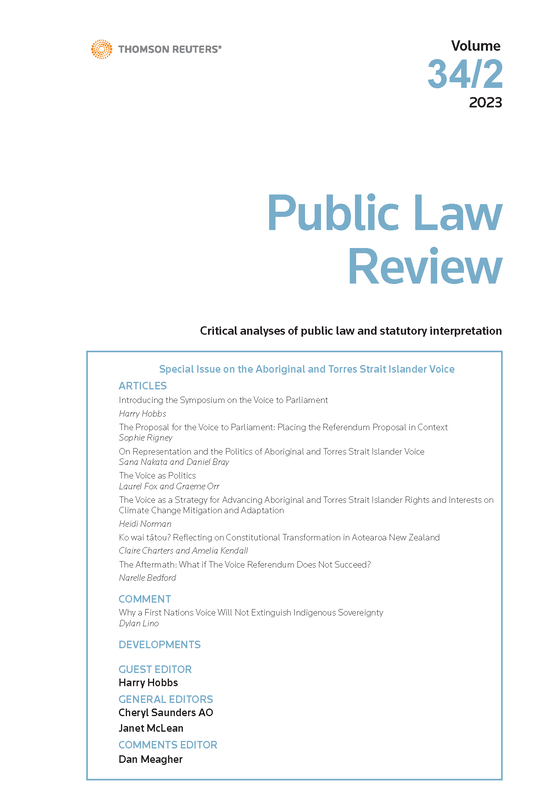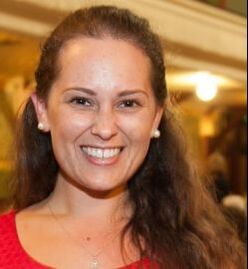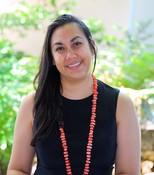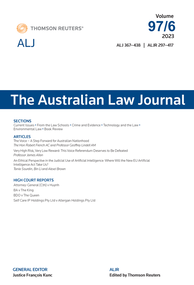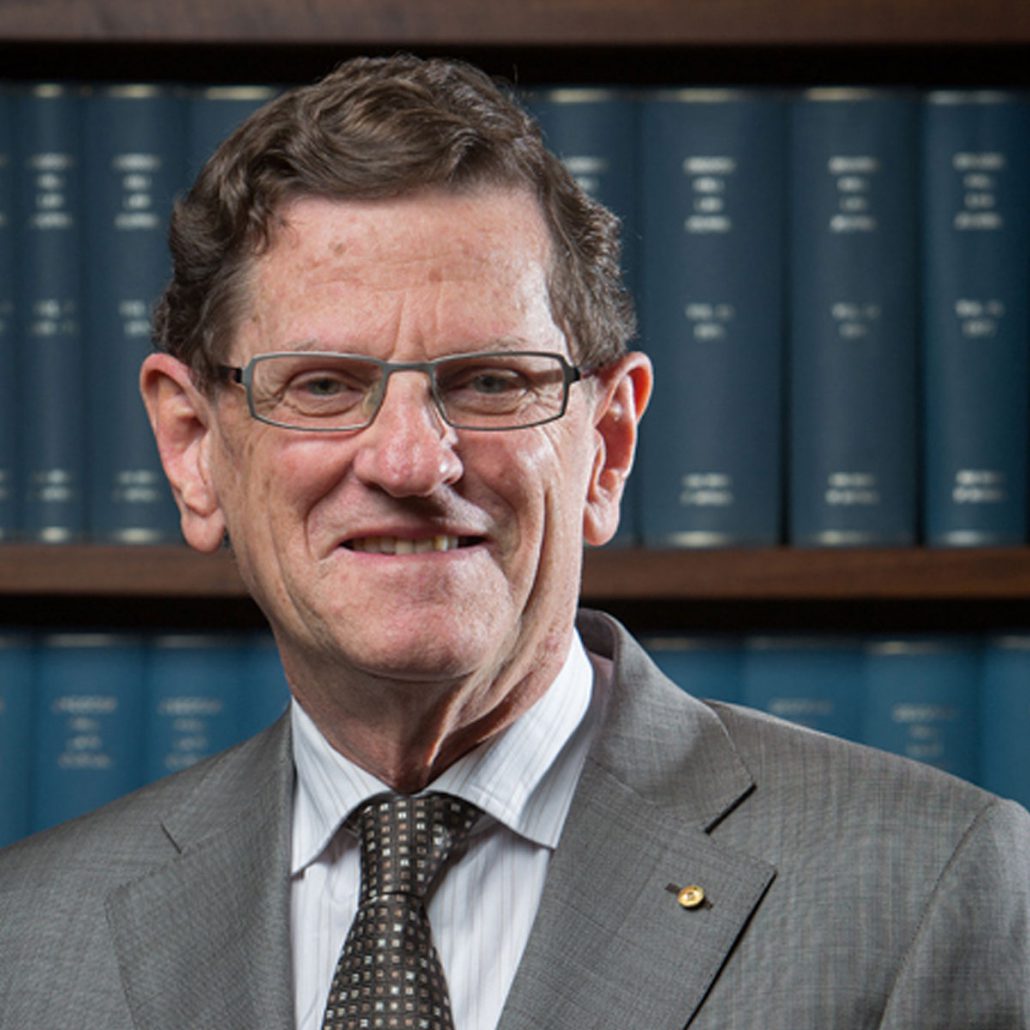Why We Need to Listen to the legal Experts
|
|
Why do lawyers take such a prominent role during a referendum campaign? Because a referendum is all about the law, the highest law in the land. Many Australians are not fluent in public law, or, indeed, have any interest in the law. |
|
Megan Davis, A First Nations Voice, Constitutional Law Reform, and the Responsibility of Lawyers (2022) AusPubLaw Blog
The Voice Legal Literacy Project is predicated on the idea that for the public to meaningfully engage with the referendum it is vital they are provided with the tools to develop a working legal literacy to support their understanding of the key ideas and context. Legal experts - both academics and practitioners - have a vital role in achieving this goal.
As UTS academic Dr Harry Hobbs notes (in his article below), “legal academics have played a prominent role in the [referendum] debate thus far”, yet there is significant ongoing work to support 'informed and accurate public engagement built on relevant legal expertise'' to counter inaccurate and misleading statements. As Dr Hobbs observes, "Public lawyers and legal academics are well suited to perform this responsibility. We also have an obligation to do so." Academics can perform this role in a number of ways:
As UTS academic Dr Harry Hobbs notes (in his article below), “legal academics have played a prominent role in the [referendum] debate thus far”, yet there is significant ongoing work to support 'informed and accurate public engagement built on relevant legal expertise'' to counter inaccurate and misleading statements. As Dr Hobbs observes, "Public lawyers and legal academics are well suited to perform this responsibility. We also have an obligation to do so." Academics can perform this role in a number of ways:
|
|
Legal academics can inform and educate Australians. We can explain what a referendum is and how it works, we can situate the proposed constitutional amendment in its context and consider what legal effect it might have. We can offer informed opinion on technical and mechanical refinements of the text. |
|
One of the unique ways academics can contribute to this discussion is to draw upon our own methods -- the use of rigorous, independent and informed research and discussion that is open, transparent and considered. The gold standard for academic output is peer-reviewed writing, where the research is reviewed by other independent and impartial academics prior to publication. This not only ensures that there are no errors or oversights, and that the research is appropriately situated in the existing law and literature, but trains us to bring this same mindset to everything we do. As Dr Hobbs notes:
|
|
In whatever capacity we engage, however, it is important that we remain true to our profession and faithful to our expertise. |
|
This training and rigour makes it particularly valuable to hear from legal experts in the context of the highly charged political debate that surrounds the referendum. These experts not only deeply understand the issues and context, and can help explain them, but also bring a rigour and independence to this process.
THE PUBLIC LAW REVIEW Special Issue on the Aboriginal and Torres Strait Islander Voice
Against this background we are delighted to be able to provide public access to cutting edge research on the Voice in August 20223, Public Law Review launched a Special Issue that brings together leading experts to examine issues surrounding the Voice and the referendum. While these articles are written for a legal audience, they provide a critical resource to all those who wish to understand the issues in a deep and considered manner.
|
Public Law Review one of Australia's most influential and widely cited legal journals. The discipline of public law is broadly conceived, covering all aspects of law and government (including, relevantly, constitutional and administrative law). The articles and commentary allow readers to stay on top of public law developments in Australasia and in other parts of the common law world.
Normally, such research is only available by subscription, and is inaccessible to the public. However, the publisher (Thomson Reuters) has recognised the importance of this edition and provided public access. This page presents that material in an accessible manner. Click here to access a full pdf of the Special Issue : |
|
Introducing the Symposium on the Voice to Parliament
Harry Hobbs(UTS)
This special issue of the Public Law Review examines several key issues surrounding the Voice and the referendum. In this introductory piece, I briefly consider three further points. I reflect on the role of legal academics in debate on the proposed constitutional amendment, the potential that the referendum may promote greater popular ownership and understanding of our Constitution, and the broader consequences of the Federal Opposition’s decision to campaign against the referendum. This decision is disappointing; the Uluru Statement from the Heart deserves so much more than to be seen through the prism of ordinary political contest. | ||||||
|
The Proposal for the Voice to Parliament:
Placing the Referendum Proposal in Context Sophie Rigney (UNSW/RMIT)
This article examines the proposed amendment to the Australian Constitution to provide for an Aboriginal and Torres Strait Islander Voice to Parliament and the executive government. This article provides a summary of the history that has given rise to this proposed constitutional change, and examines the drafting history of the proposed amendment. The article particularly examines three issues related to the proposed amendment: the use of the word “may” in the proposed amendment; the Voice speaking to both Parliament and executive government; and the ability of the Parliament to determine the design of the Voice. The article explains where the proposal has come from, why it appears in the form it does, and outlines some of the strengths and challenges of the proposal
| ||||||
|
On Representation and the Politics of Aboriginal and Torres Strait Islander Voice
This article analyses the proposed Aboriginal and Torres Strait Islander Voice to Parliament through the lens of democratic theory and the concept of representation. We outline two conceptions of representation, the dyadic and constitutive perspectives, and argue that the constitutive perspective better illuminates the democratic value and political power of an institutionalised Voice to Parliament. From a constitutive perspective, the political power of Indigenous representation is grounded in existing fields of representation that both precede and exceed the Australian State. On this perspective, the political power of the Voice lies not only in the ability to directly affect political decisions, but also in the way that authoritative representative claims can shape public attitudes, values and decisionmaking by setting agendas, attracting the views of affected communities and shaping the terms of debate. We argue that the Voice to Parliament expands and empowers existing fields of Indigenous representation by acting as “connective tissue” between Indigenous peoples and state institutions that cannot be politically severed. Its representative power emanates not just from its legal authorisation but also from its political function as a new communicative lever with the potential to transform the national public and political discourse. | ||||||
|
The Voice as Politics
Laurel Fox and Graeme Orr
The 2023 referendum to embed an Aboriginal and Torres Strait Islander Voice in the Constitution animates questions about the potential of such an institution as an agent for the further development of a national Indigenous politics. This article explores those questions, within their theoretical and historical context. This context includes the nature of political representation given Indigenous diversity and the history of formal, national Indigenous representative bodies in Australia. A representative Voice would at a minimum be a centring conduit; necessarily so given its purpose of speaking into the behemoth that is government at the Commonwealth level. Lessons from the past illuminate challenges for the future design of any Voice, a sensitive issue given tensions between localism and centralism, and between the demotic and existing Indigenous structures. Ultimately, to be transformative within Indigenous and mainstream discourse, the Voice must be sufficiently public, representative and accountable: in short sufficiently political | ||||||
|
The Voice as a Strategy for Advancing Aboriginal and Torres Strait Islander Rights and Interests on Climate Change Mitigation and Adaptation
A new and meaningful relationship between Indigenous peoples and political institutions, as the Voice intends, is needed to address climate change adaptation and mitigation. Indigenous peoples in Australia, and globally, are already experiencing the impact of climate change. With rights and interests recognised over their land, this land estate is increasingly vital to addressing the immediate term net-zero targets and longer-term reduction of carbon in the atmosphere along with advancing Indigenous knowledges in new economies and rights to country
| ||||||
|
Ko wai taˉtou? Reflecting on Constitutional Transformation in Aotearoa New Zealand
Claire Charters and Amelia Kendall
This article traces the constitutional development in Aotearoa New Zealand from the Indigenous first law of tikanga Ma¯ori to our current arrangements and towards our future aspirations. Notably in 2016, He Whakaaro Here Whakaumu Mo¯ Aotearoa: the report of Matike Mai Aotearoa envisioned indigenous constitutional transformation to reconceptualise current constitutional arrangements. Post-2016, constitutional transformation has been limited by Crown politics, with recent initiatives failing to enact true partnership between state and ta¯ngata Ma¯ori.
As Indigenous peoples around the globe grapple with how to effectively initiate and conduct constitutional discussions within colonial state systems, the Indigenous experience of ta¯ngata Ma¯ori in Aotearoa New Zealand will hopefully provide some insights that may positively contribute to meaningful constitutional change. | ||||||
|
The Aftermath: What if The Voice Referendum Does Not Succeed?
Narelle Bedford (Bond)
The Uluru Statement from the Heart is an invitation to all Australians. However, should the referendum to amend the Australian Constitution to establish an Aboriginal and Torres Strait Islander Voice be unsuccessful, it would have three problematic legal consequences for public law. This is beyond the inevitably deeply personal, national, and international impacts. The first public law consequence is the continuing silence in the Australian Constitution about First Nations people and a loss of Constitutional confidence. The second is the drift away from co-operative federalism. The third is the sustained absence of expert cultural advice in government decision-making. Great change is not without risk. But that risk is not a reason for retreating fearfully and not trying to do something that matters | ||||||
|
Comment: Why a First Nations Voice Will Not Extinguish Indigenous Sovereignty
Dylan Lino (UQ)
Among the Voice’s progressive critics, and especially First Nations critics, one of their persistent concerns has been that constitutionally enshrining the Voice could extinguish Indigenous sovereignty. These are important and valid concerns, and Aboriginal and Torres Strait Islander people should have clear responses to them prior to the referendum. They are concerns which I seek to assuage in this comment. While the question of whether the Voice would extinguish Indigenous sovereignty has been addressed by legal scholars through brief commentary in the media, this comment is the first to give the question in-depth scholarly consideration.
I begin by outlining the concerns expressed by some First Nations people that constitutional enshrinement of the Voice would extinguish Indigenous sovereignty. Next, I argue that the Voice cannot extinguish Indigenous sovereignty under either Australian law or international law because, according to each of those legal systems, Indigenous sovereignty does not exist in the first place. In other words, when it comes to the formal recognition of Indigenous sovereignty under Australian and international law, the problem is with the law as it currently exists, not with changes to the law produced by constitutional enshrinement of the Voice. The denial of Indigenous sovereignty is an injustice, the blame for which should be sheeted home to existing Australian and international law rather than to the effects of the Voice. I go on to show that, regardless of what Australian or international law says, Indigenous sovereignty exists as both a lived reality under Indigenous law and as a political claim against the settler state. | ||||||
|
The full version of the pdf of the Special Issue is available here:
|
| ||||||
Australian Law Journal - Voice Articles
|
The Australian Law Journal is one of the oldest and most cited legal journals in Australia, and is the pre-eminent legal journal covering a spectrum of all the important current and historical legal issues. First published in 1927, each monthly part brings rigorous legal analysis, thoughtful debate and special insight with articles written by specialist editors leading in their fields.
The publishers of the ALJ have agreed to make certain articles about the Voice - written by leading proponents for and against the proposal - to be made publicly available through this site |
|
The Voice – A Step Forward for Australian Nationhood
The Hon Robert French AC and Professor Geoffrey Lindell AM (Adelaide)
This article, written by a former Chief Justice of the High Court of Australia, and one of Australia's most eminent constitutional scholars, makes the case for supporting the Voice proposal.
The article begins by recognising that proposal for the establishment, in the Constitution, of an Aboriginal and Torres Strait Islander Voice to Parliament and the Executive Government has engendered debate. That debate has raised issues about its substantive merits and the legal implications of the draft proposal. In this article the authors, who support the draft proposal, then go on to set out some of the historical context and discuss legal issues which have been ventilated. They argue that the Voice is "a proposal whose normative force and potential practical benefit outweigh, by a considerable margin, the asserted risks associated with the amendment." | ||||||
|
Very High Risk, Very Low Reward:
This Voice Referendum Deserves to Be Defeated Professor James Allan is the Garrick Professor of Law at The University of Queensland, and a leading expert in legal and moral philosophy and constitutional law. Professor Allan was invited by the editor of the ALJ to make the “No” case to the upcoming Voice referendum while replying to former Chief Justice French's address arguing the “Yes” case. The author makes both political, legal and moral arguments for voting “No”.
He argues that "What is being proposed is in no way at all a modest change. It will go to the heart of our current governing arrangements, both in practical and in legal terms. Proponents say it will lead to unity and Reconciliation. I think it far more likely to lead to disunity, bitterness and a sense that some groups in Australian life get special treatment solely based on birth." | ||||||
Acknowledgment
The Voice Legal Literacy Project is deeply grateful for the support from Thomson Reuters in both providing public access to this Special Issue, and providing specific support to the VLLP in producing this page in this format. This commitment to public education and understanding of these complex matters of the highest public significance is exemplary
|
Thomson Reuters is the world's leading source of intelligent information for businesses and professionals. Guided by their ‘Trust Principles’ , they provide industry expertise, technology, and content that empowers professionals and institutions to solve complex problems and make difficult decisions with confidence. Thomson Reuters provide trusted data and information to professionals across three different industries: Legal; Tax and Accounting; and News & Media. With headquarters in Toronto and major operations around the globe, Thomson Reuters employs approximately 45,000 people and operates in over 100 countries.
Through their Trust Principles, the company is committed to the pursuit of justice, truth and transparency in informing the way forward to a more understanding, trusting world for all. The provision of accurate, transparent and unbiased information about the Voice is a concrete manifestation of these principles. |
Further Resources
On the Role of Lawyers
- Megan Davis A First Nations Voice, Constitutional Law Reform, and the Responsibility of Lawyers (2022) AusPubLawBlog 2022
- Paula Gerber and Katie O’Bryan Lawyers can play role in Voice debate (2023) Proctor 10 August 2023
- Marie Iskander The duty of lawyers to inform and be informed on the proposed constitutional Voice to Parliament (2023) Lawyers Weekly April 2023
- Jess Feyder Lawyers ‘ideally placed’ to ensure public understands Voice to Parliament (2023) Lawyers Weekly October 2022

